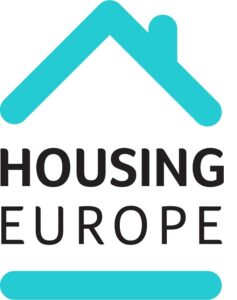Cooperation through the “Urban Agenda for the EU” Housing Partnership Action Plan

The Housing Partnership of the Urban Agenda for the EU used an evidence-based and consultative process, enhancing knowledge and promoting action to improve legal and financial conditions for EU cities to invest in new or renovated affordable housing.
Description
The Partnership involved representatives of EU Member States, cities, housing providers and tenants, as well as EU institutions and programmes. The partners prepared papers on ten selected themes and consulted extensively with the public, as well as with the European Commission and Parliament.
The EU Housing Partnership Action Plan proposed several key actions. These included improving support and policy guidance to develop European affordable housing, EU-level dialogue on housing matters, reformed funding structures or state aid rules, and improved housing issue monitoring through the European Semester process.
Actors involved
- City of Vienna
- City of Lisbon
- City of Poznan
- City of Riga
- Scottish Cities Alliance
- EUROCITIES
- Government of Slovakia
- Government of Latvia
- Government of Luxembourg
- Government of the Netherlands
- Government of Slovenia
- AEDES
- Housing Europe
- International Union of Tenants
- European Commission (DG REGIO and contributions from DG NEAR and DG EMPL)
- European Investment Bank
- Faculty for Urban Studies, Science Po – Paris Institute of Political Sciences
Scale
EU
More information
The Partnership made specific recommendations on governance. For example, reducing the EU housing overburden rate – the percentage of household disposable income spent on housing – from the current high rate of 40 per cent. It also recommended greater participation and protection of tenants in renovated dwellings, plus subsidies to ensure affordability after dwelling renovation. Mindful of the current emphasis on renovation, the Action Plan stressed strengthening the role of tenant organizations in the advocacy and rent-setting processes.
Given the continuing importance of land policies in supporting affordable housing development, the Action Plan advocates the use of land value capture and conditional land leasing. Finally, recommendations were made about developing rules and interventions to encourage cost-effective construction of good-quality housing, as well as measures counteracting housing market speculation to protect scarce affordable housing resources.
https://futurium.ec.europa.eu/en/urban-agenda/housing/action-plan/housing-partnership-action-plan

An initiative of:


